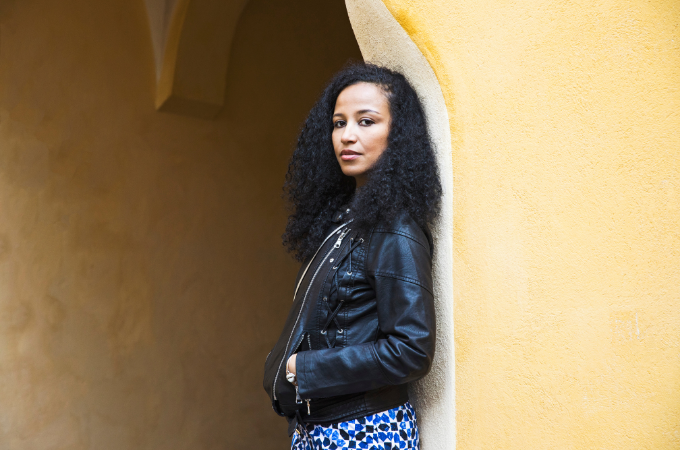
A people are as healthy and confident as the stories they tell themselves. Sick storytellers can make nations sick. Without stories we would go mad. Life would lose its moorings or orientation . . . stories can conquer fear, you know. They can make the heart larger.
– Ben Okri
***
The word potential has a specific, and aching, meaning for Africans. Ours is a continent of riches, that suffers the highest rates of poverty. Africa is the home of humanity but also a home where inhabitants feel unsafe. And it’s powerful and unique semi-matriarchal history is clouded by arch-patriarchy. Africa is as full of potential as a river that is obstructed by a dam. To free the river of potential so that it can flow into all corners of the continent and its diaspora, we need stories that illuminate and converge the past, present and future.
Two cultural stories that had a key impact on Africa’s cultural and literary sphere in the past decade are African feminism and afropolitanism. Through the 2010s, Afropolitanism catalyzed critical discussions to do with Africa and diaspora heritage, belonging, the arts, capitalism, elitism, and globalization at museums, conferences and exhibitions. It framed commercial magazines and academic books alike and outlined passionate debate both online and offline. African feminism too influenced cultural life in undeniable ways. The 2010s saw seminal books by writers like Chimamanda Adichie, Bernardine Evaristo, Chika Unigwe, Maaza Mengiste and Sisonke Msimang to name only a few African feminist writers who changed the face of the African literary scene. African feminist discourse shaped the global mainstream too, most explicitly in pop icon Beyoncé’s video for Flawless, which featured Adichie, but African feminist themes were visible also in blockbusters such as Black Panther. Elsewhere, panels, articles, Twitter debates, you name it, drove conversations. If it was unfashionable even for progressive-minded Africans to be feminist at the beginning of the 2010s, at the end of the decade it was so fashionable to be feminist that even sexist commentators wrote patriarchal commentary and labelled it feminist.
Many other important cultural stories and movements grew in tandem, and afropolitanism and African feminism made an impact also beyond cultural life. But in this piece I focus on their impact in culture specifically because I believe that the two have important stories to tell about Africa’s potential also in the coming decade. However, African feminism and afropolitanism are not by any means co-dependent as the title of this essay might imply. For one, African feminism goes back decades, if not centuries when you count proto-feminist movements in pre-modern Africa. Afropolitanism is relatively new though one could argue that there is an ancient “African cosmopolitanism” visible in the ethnicities, languages and lifestyles that make African nation-states today.
The two narratives are certainly in dialogue thanks to social media, which caused them to intersect in many areas of cultural life (albeit in dissimilar ways which I shall address later). Social media ushered all sociocultural institutions — religion, media, business, family structure, leisure, education, romance, protest— into a mode of rapid transformation. It has stirred cultural revolution and cultural crisis. Correspondingly, there is a thirst to qualify the zeitgeist through the prism of theory and conceptualization (what I’m referring to as stories). Both African feminism and afropolitanism provided prisms for meaning-making, resistance and reimagination in the rapidly changing social terrain of the 2010s.
If the past decade was one of cataclysmic change with an even more dramatic pandemic ending scene, we have only experienced the tip of the iceberg of a world in flux. The near future will be marked by even more rapid transformation than humanity has ever known. Globally, we are grappling with enormous social, ecological, technological and biological harms. It is likely that by 2030, Artificial Intelligence (AI), robotics and blockchain technologies will have made society even more unrecognizable than the coronavirus pandemic of 2020 has. The budding nanotechnological revolution, which will enable the manipulation of matter at atomic level could pose a horrendous threat to our planet. Detrimental social ills such as sexism, racism, classism, are not only still prevalent; they are exacerbated by authoritarianism, culture wars and populism. Poverty and hunger are increasing, and Africa, with its compromised position in the global order, is especially vulnerable to these tidal restructurings.
To best meet the seismic shifts, we need conceptual vehicles that can steer us onto smooth and perhaps even, enchanting, roads. For people of African heritage, such vehicles need to ride forward with both symbolic and pragmatic wheels. While development in the west is relatively linear, Africa has societies which are feudal, agricultural, sultanate, etc. alongside effervescent modern cities and democracies. In addition, each society is enmeshed in a global network that exploits Africa; and a patriarchal hierarchy that suppresses women. We need meaning-making stories that themselves borrow from multiple disciplines, resistance movements, epochs and geographies.
African feminism and afropolitanism are each in their own way complex and layered notions, and here I am addressing them broadly. African feminism is no longer the relatively uniform movement it still was in 2010. Different strands of African feminism are now easier to identify. The afropolitanism moniker will be contested – as it was in the 2010s – but the sentiment it imbues, that of Africa within the world and the world within Africa, will be inevitable also in the 2020s.
I’ll close with a reflection of two defining cultural moments of each concept in the past decade. Firstly, there was Chimamanda Adichie’s TEDx Euston talk “We Should all be Feminists” delivered in December 2012. As it made its way out into the public domain, I noticed its impact first-hand. The difference in how people engaged with my own Ms Afropolitan blog, an African feminist and afropolitan blog, after the talk was almost palpable. Prior to Adichie’s talk, my blogs about feminism were met with lukewarm if curious engagement. After the talk, not only did I witness the spikes in reader statistics as people who searched for African feminism landed on my website; readers were also far more open toward the feminist ideas that I wrote about.
If the growing popularity of African feminism created a positive interest in my blog, the decreasing popularity of afropolitanism had the opposite effect. Around the same time that Adichie’s talk helped to popularize African feminism, a number of critical essays by thinkers and scholars took issue with afropolitanism, and it became increasingly unpopular to associate with the notion.
My blog is beside the point, however. I don’t sell ads or monetize; so, growing or decreasing reader statistics was never a top priority for me. “Telling a story” was always my priority and so as the title, Ms Afropolitan, implies – the blog placed me at the intersection of both the African feminist and the afropolitan stories which shaped the decade, oftentimes disharmoniously.
Nor do I intend to suggest that Adichie’s talk or critiques of afropolitanism were the only significant events that occurred when it comes to these narratives. The scope of this article is not enough to delve into the many opportunities and challenges posed by each of them. What can get lost in the civic debate, however, is the very meaning-making both African feminism and afropolitanism promise. Which brings me back to my original point: volatile times call for complex and imaginative cultural stories. Many of the problems Africans face are to do with a lack of vision about Africa’s place in the world, and the direction such visions can provide people of African heritage.
As we brace ourselves for deep shifts – Information Age to Knowledge Age; postmodernity to metamodernity; human to transhuman; Holocene to Anthropocene, all while endangering the nonhuman natural world and the species it inhabits (including humans), we must not forget the unique tool given to us – imagination. As the revolutionary and activist Angela Davis says, “You have to act as if it were possible to radically transform the world. And you have to do it all the time.” Imaginative stories that illuminate the past, put their finger on the zeitgeist and provide a space to reimagine the future are the tools with which to transform the world. They are how we break down the dam and allow the river’s potential to unfurl.


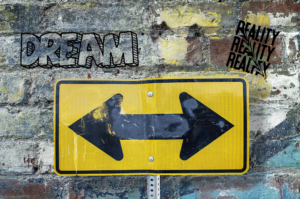
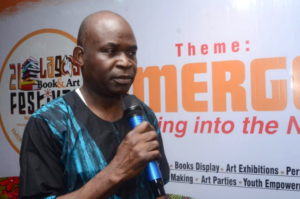
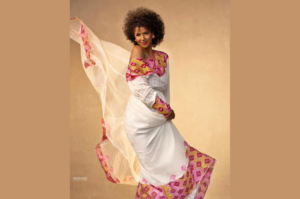


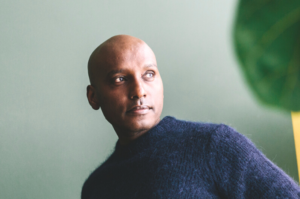

Gutter Juice: The dangerous addiction, Interview with Fisayo Longe – the best Nigerian articles of the week » YNaija September 20, 2020 05:00
[…] How African Feminism and Afropolitanism shaped the cultural agenda of the decade and how they might … – Minna Salami […]